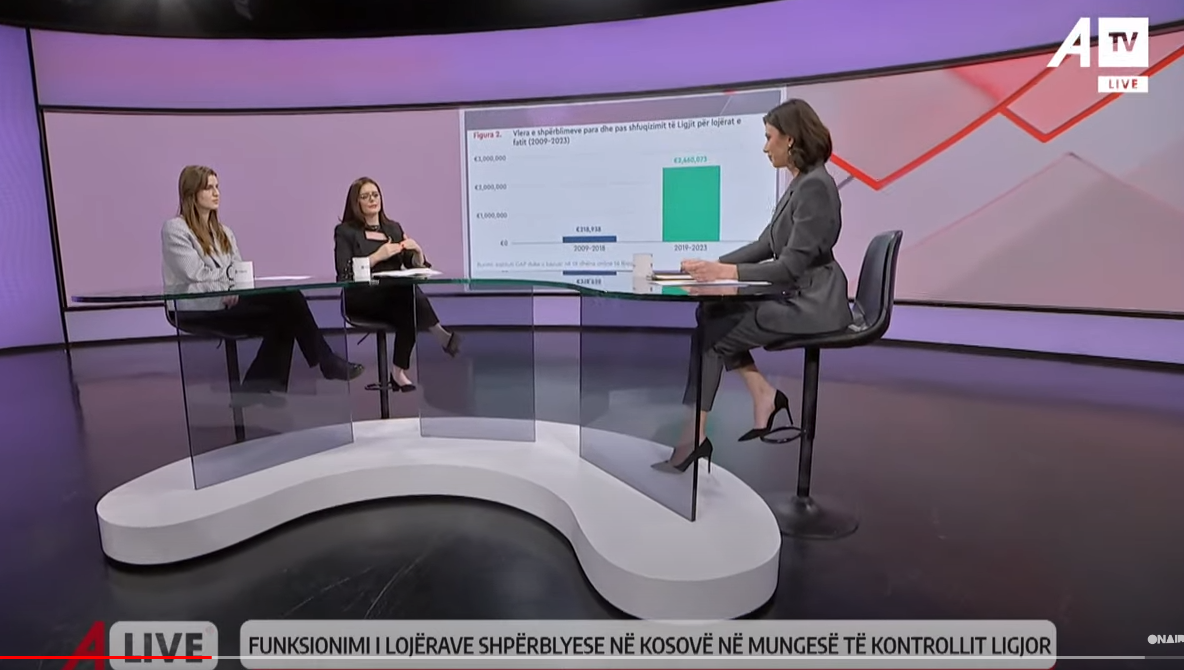GAP Institute published a report “Addressing Responsibility – Knowledge of Citizens on competencies of local governments”
03/04/2017
Nora Latifi - Jashari, Executive Director of GAP Institute, said that the goal of this research was to measure citizens" knowledge on competences of central and local governments She emphasized that usually during election campaigns mayoral candidates make promises to solve problems in areas which do not fall within the municipal competencies. For example, they promise to solve electricity problems, open factories, open a new airport, etc. Afterwards, when taking office, mayors often complain that they are held accountable for things that are beyond their competencies. GAP Institute has conducted a survey in 38 Kosovo municipalities with 1,000 citizens of Kosovo, targeting all ethnic groups. Citizens were asked about various issues of public services, such as waste management, water supply, road maintenance, salary increases in education and health, etc. The findings of this research also show that there is an overlap and conflict of competences between the two levels of government. She stressed out that it is important to clarify the competencies and to increase awareness of Kosovo citizens in order to increase civic engagement and pressure for offering better services.
Bekim Salihu, Senior Researcher at GAP Institute presented the main findings of the research. He stressed out that citizens have sufficient knowledge regarding the institutional responsibilities for carrying out various public services. Over 85% of citizens know that waste management is the responsibility of the municipality and the regional company for waste management. While nearly 80% of citizens are aware that water supply is the responsibility of the regional water supply company, while only 13.3% think it is only the competence of the municipality. But he also stressed that there are some areas where citizens do not have enough knowledge about competencies between the central and local levels. In some cases, citizens wrongly leave responsible central level for matters that fall on the municipal level responsibility. One such example is the appointment of teachers in schools. Roughly 49% of citizens believe that this is the responsibility of the Ministry of Education, Science and Technology, and 33.5% are aware that it is a municipal competence. In some other cases, citizens hold the municipality responsible for matters falling within the competence of the central level. When asked regarding the institution that they should apply to obtain an identity card and passport, over 50% of respondents think that this is the address for the municipality, while 34.3% are aware that the correct address is the Ministry of Internal Affairs.
Some of the main findings from this research are:
- Despite the conviction established that citizens lack knowledge regarding the competencies of local governments, the findings of this research showed that citizens are familiar enough about public services and those responsible for carrying them out
- Since this year it is a year of local elections, candidates for mayors should refrain from making promises which do not fall within the area of local competencies
- GAP Institute in cooperation with public institutions will undertake an information campaign to inform citizens about the municipal competencies in those questions where the majority of respondents gave the wrong answer
- Also, GAP Institute will advocate to public institutions to eliminate the legal dispute between Law on local governance and other laws that interfere with municipal competencies.
To read the full report please click HERE.















